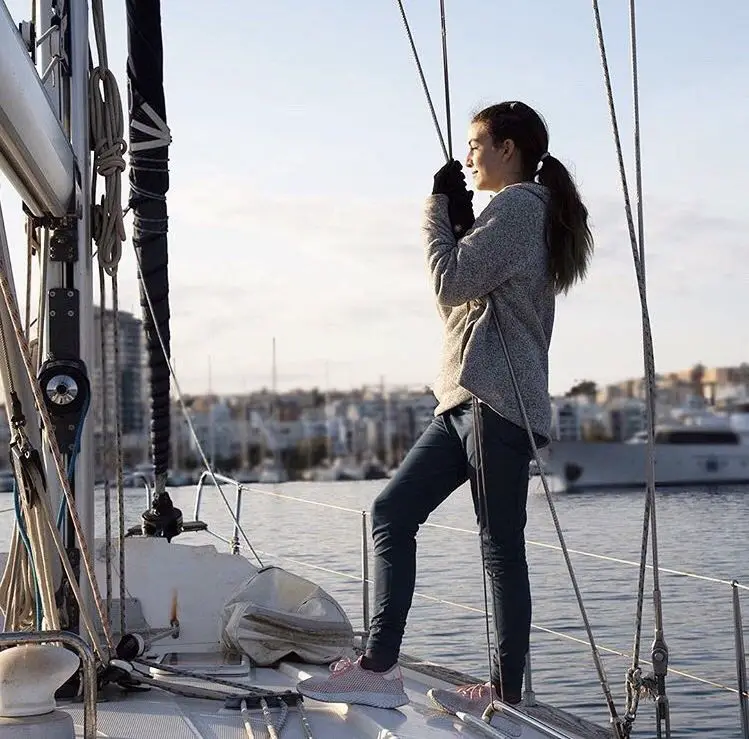There are a few reasons why boats are referred to as “she.”
- Feminine personification
One theory is that boats are referred to as “she” because they are often personified as feminine. This is likely due to the fact that boats are often seen as being nurturing and protective, like a mother. They can also be seen as being beautiful and graceful, like a woman.
- Language origins
Another theory is that the practice of referring to boats as “she” dates back to the origins of language. In many languages, including Latin and French, nouns are assigned a gender. In these languages, boats are typically assigned the feminine gender. This tradition may have carried over into English, where boats are also often referred to as “she.”
- Tradition
Ultimately, the practice of referring to boats as “she” is likely a combination of all of these factors. It is a tradition that has been passed down for centuries, and it is likely to continue for many years to come.
Here are some additional details about each of these theories:
Feminine personification
The practice of personifying boats as feminine dates back to ancient times. In many cultures, boats were seen as being sacred or divine, and they were often associated with goddesses. For example, the Greek goddess Aphrodite was often depicted riding on a boat.
This tradition of personifying boats as feminine carried over into the Middle Ages, when boats were often named after women. For example, the famous ship the Mayflower was named after the wife of the ship’s captain.
Language origins
In many languages, including Latin and French, nouns are assigned a gender. In these languages, boats are typically assigned the feminine gender. This is likely due to the fact that boats are often seen as being nurturing and protective, like a mother. They can also be seen as being beautiful and graceful, like a woman.
This tradition of assigning boats the feminine gender may have carried over into English, where boats are also often referred to as “she.”
Tradition
Ultimately, the practice of referring to boats as “she” is likely a combination of all of these factors. It is a tradition that has been passed down for centuries, and it is likely to continue for many years to come.
Boats have been referred to as “she” for centuries. There are a few theories as to why this is the case, but the most likely explanation is that it stems from ancient mariners’ superstitions. Boats were seen as dangerous and unpredictable creatures, and so they were given female names and treated with respect in an attempt to keep them calm.
There are a few theories out there as to why boats have traditionally been referred to as “she.” One is that it’s a holdover from when ships were sailed by crews of mostly men. The ship was often seen as the woman of the sea, and the crew would refer to her as such out of respect.
Another theory is that boats are seen as feminine because they’re nurturing and provide safe haven during storms. This theory likely has some truth to it, as many sailors have recounted stories of their boat saving them during tough times at sea.
Whatever the reason, referring to boats as “she” has been a long-standing maritime tradition.
And even though more and more women are taking up sailing, the tradition remains.

Credit: theguardian
Why are Boats Referred to As “She”
The reason boats are referred to as she is because they are seen as a feminine object. This is likely due to the fact that boats are often seen as something that needs to be taken care of, and because they are often seen as a symbol of beauty.
-Referring to a Boat As “She” is Seen As a Sign of Respect
Referring to a boat as “she” is seen as a sign of respect. It’s a tradition that dates back to the early days of seafaring, when boats were often seen as female entities.
-It is Also Seen As a Way of Acknowledging the Power And Strength of the Vessel
When a sailor dies at sea, it is customary to bury them at sea. There are a number of reasons for this. Firstly, it is seen as a way of acknowledging the power and strength of the vessel they served on.
It is also seen as a way of giving back to the sea which has claimed their life. Finally, it is seen as a way of ensuring that their soul can rest in peace.
The burial itself is usually conducted by the ship’s captain and crew.
The body is wrapped in a weighted shroud and then lowered into the water. A short service is usually held before the body is committed to the depths.
For many sailors, being buried at sea is seen as an honour.
It ensures that they will always be with the vessel they loved and served on until their final days.
Why Are Boats Called a She?
Why are Machines Referred to As She
Machines are often referred to as “she” because they are seen as helpful and benevolent entities. This is in contrast to the traditional view of machines as cold, heartless, and inhuman. The use of feminine pronouns when referring to machines is meant to convey the idea that these devices can be caring and compassionate, just like a woman.
This usage of gendered language is not without its critics, who argue that it perpetuates harmful stereotypes about women. They say that calling machines “she” reinforces the notion that women are nurturing and subservient beings whose primary purpose is to serve others. Others argue that there is nothing wrong with using feminine pronouns for machines, as they are simply neutral objects that can be seen as either male or female depending on the person’s perspective.
What do you think? Should machines be referred to using masculine or feminine pronouns? Or should we avoid using gendered language altogether when talking about these inanimate objects?
Conclusion
The author of the blog post begins by discussing the history of boats and how they have been used by humans for centuries. She then goes on to explain why boats are often referred to as “she.” The author states that this is because boats are seen as feminine objects that need to be cared for and protected.
She also notes that boats are often seen as a symbol of freedom and adventure, which may be another reason why they are referred to as “she.” In conclusion, the author argues that there is no one correct answer to why boats are called “she,” but that it is likely due to the many different meanings and symbolism associated with these vessels.
